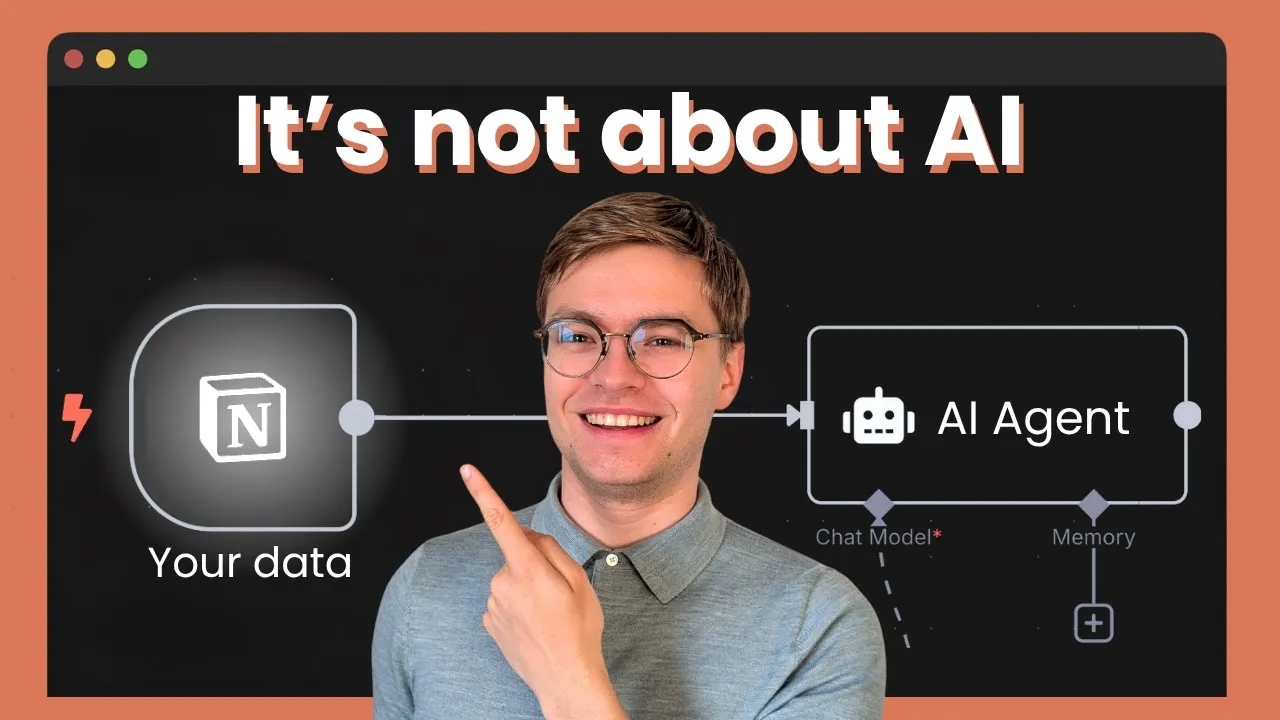AI Automation for Startups Why Data Quality Beats Tool Selection
Every startup founder gets pitched the same AI automation dream: automate your content, scale your marketing, generate thousands of leads without hiring. The tools promise everything, from automated blog writing to complete sales funnels. But here’s what the sales pitches don’t tell you: most startups fail at AI automation not because they chose the wrong tool, but because they feed these tools garbage data.
The Startup AI Automation Trap
Startups face unique pressure to do more with less. When AI automation tools promise to multiply your output without multiplying your team, it seems like the perfect solution. You sign up for the latest workflow automation platform, connect your AI models, and expect magic to happen.
But what actually happens? The automated content sounds generic. The AI-generated emails get ignored. The blog posts could have been written by any company in any industry. This is precisely why understanding what AI strategies work best for businesses becomes crucial. Successful implementation requires strategy, not just tools. You’ve automated the process of creating mediocre content at scale. For a startup trying to stand out in a crowded market, this is worse than producing nothing at all.
Why Startups Have a Data Advantage
Here’s the counterintuitive truth: startups actually have an advantage over large companies when it comes to AI automation, but only if they leverage their unique data. As a startup, you have direct access to your founders’ expertise, your early customer conversations, your unique market insights. This is gold for AI automation.
Large companies often struggle because their valuable knowledge is buried in bureaucracy and spread across departments. But in a startup, the founder who pitched a hundred investors, the engineer who solved the core technical challenge, the early employees who talked to every customer: their knowledge is your competitive advantage. This expertise, properly captured and fed into AI systems, creates automation that sounds authentically like your company.
Building Startup-Specific Automation Workflows
Successful AI automation for startups doesn’t start with choosing tools. It starts with identifying and capturing your unique knowledge assets. What insights do you have from customer development? What patterns have you noticed that competitors miss? What unique perspective does your founding team bring?
Instead of asking AI to generate generic content about your industry, feed it transcripts from your founder’s talks, notes from customer interviews, documentation of your unique approach. This data-driven approach mirrors the principles used in production-ready RAG systems where quality input data directly determines system effectiveness. When AI has access to this rich, startup-specific data, it can create content that actually represents your company’s voice and value proposition.
The Compound Effect for Growing Companies
For startups, the quality of your AI automation compounds over time. When you start with rich, unique data, every piece of automated content reinforces your brand and expertise. This builds trust with your audience, which leads to better engagement, which provides more data to improve your automation.
Contrast this with startups that use generic automation. They produce noise that gets ignored, leading to poor engagement metrics, which teaches their AI systems that mediocre content is acceptable. It’s a downward spiral that wastes resources and damages brand perception.
Practical Data Collection for Resource-Constrained Teams
Startups can’t afford complex data management systems, but they don’t need them. Simple practices can capture high-quality data for AI automation. Record your sales calls and customer interviews. Document your product decisions and the reasoning behind them. Save your investor pitch iterations and the feedback you received.
These artifacts of your startup journey become the raw material for authentic AI automation. A blog post derived from actual customer pain points you’ve discovered will always outperform generic industry commentary. An email sequence based on real objections you’ve overcome will convert better than template-based automation.
Scaling Authentically with AI
The goal for startup AI automation isn’t to pretend you’re bigger than you are. It’s to amplify your authentic voice and unique insights across more channels than a small team could manage manually. When done right, AI automation lets a five-person startup maintain the content presence of a fifty-person company while keeping the authenticity that makes startups appealing.
This authentic scaling is only possible when your automation is grounded in real expertise and experience. Generic AI content makes your startup sound like every other company. But automation based on your unique data makes you sound like a more present, more helpful version of yourself.
The ROI of Quality-First Automation
Startups live and die by ROI, and the ROI of AI automation depends entirely on data quality. Low-quality automation might seem cheaper initially, you’re just paying for tools and letting AI generate everything. But the hidden costs include damaged brand perception, poor conversion rates, and the opportunity cost of missing real connections with customers.
High-quality automation requires upfront investment in capturing and organizing your unique data. For professionals looking to develop these data-driven AI skills that startups desperately need, the AI engineering career path provides comprehensive guidance on building expertise that companies actually value. But this investment pays off through higher engagement rates, better lead quality, and content that actually drives business results. For resource-constrained startups, this focused approach delivers far better returns than spray-and-pray automation.
To see exactly how to build data-driven AI automation that actually works for startups, watch the full video tutorial on YouTube. I demonstrate the dramatic difference between generic and data-rich automation, showing you how to build systems that amplify your startup’s unique value. Ready to build AI automation that actually drives growth? Join the AI Engineering community where we focus on practical, results-driven automation strategies for growing companies.
